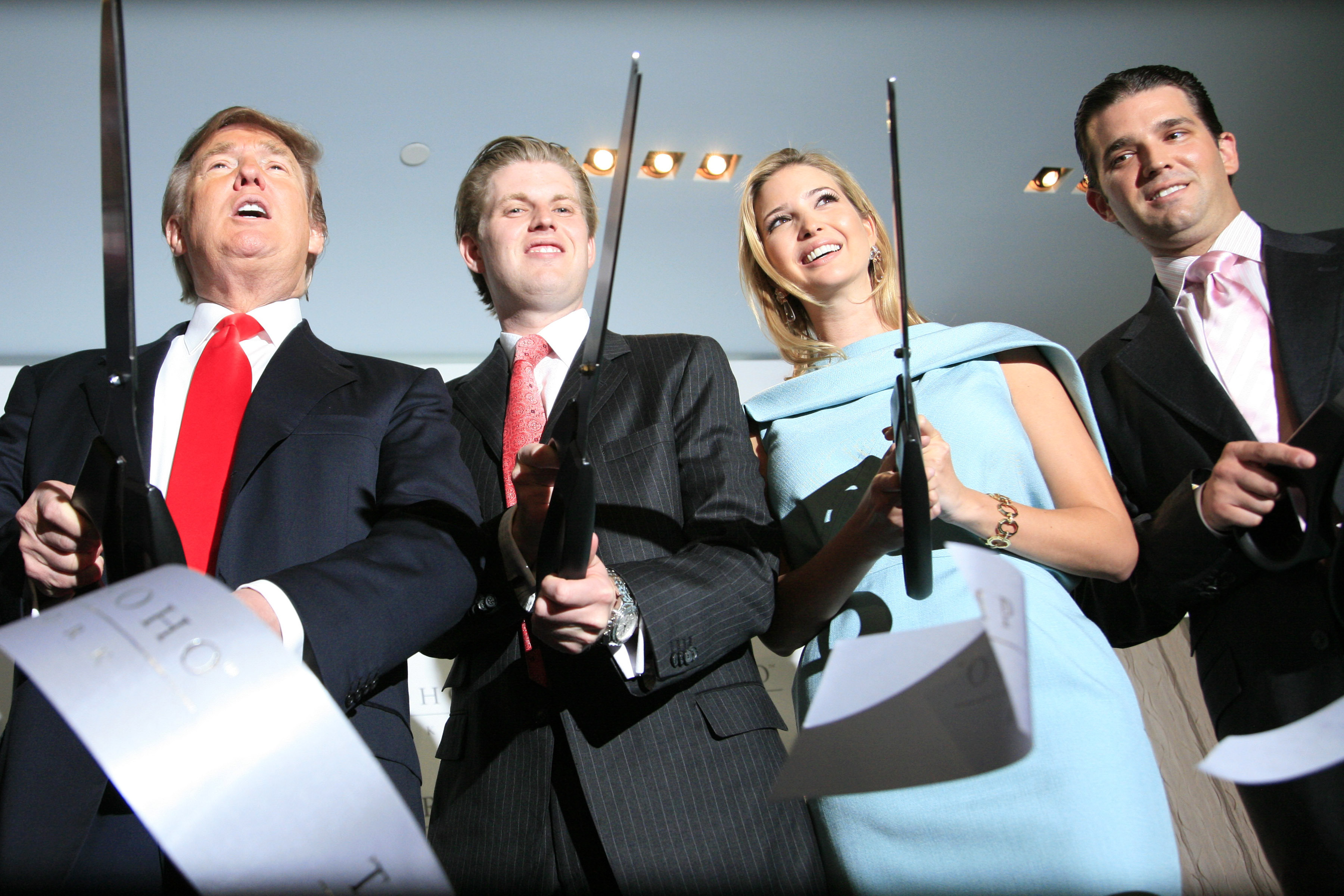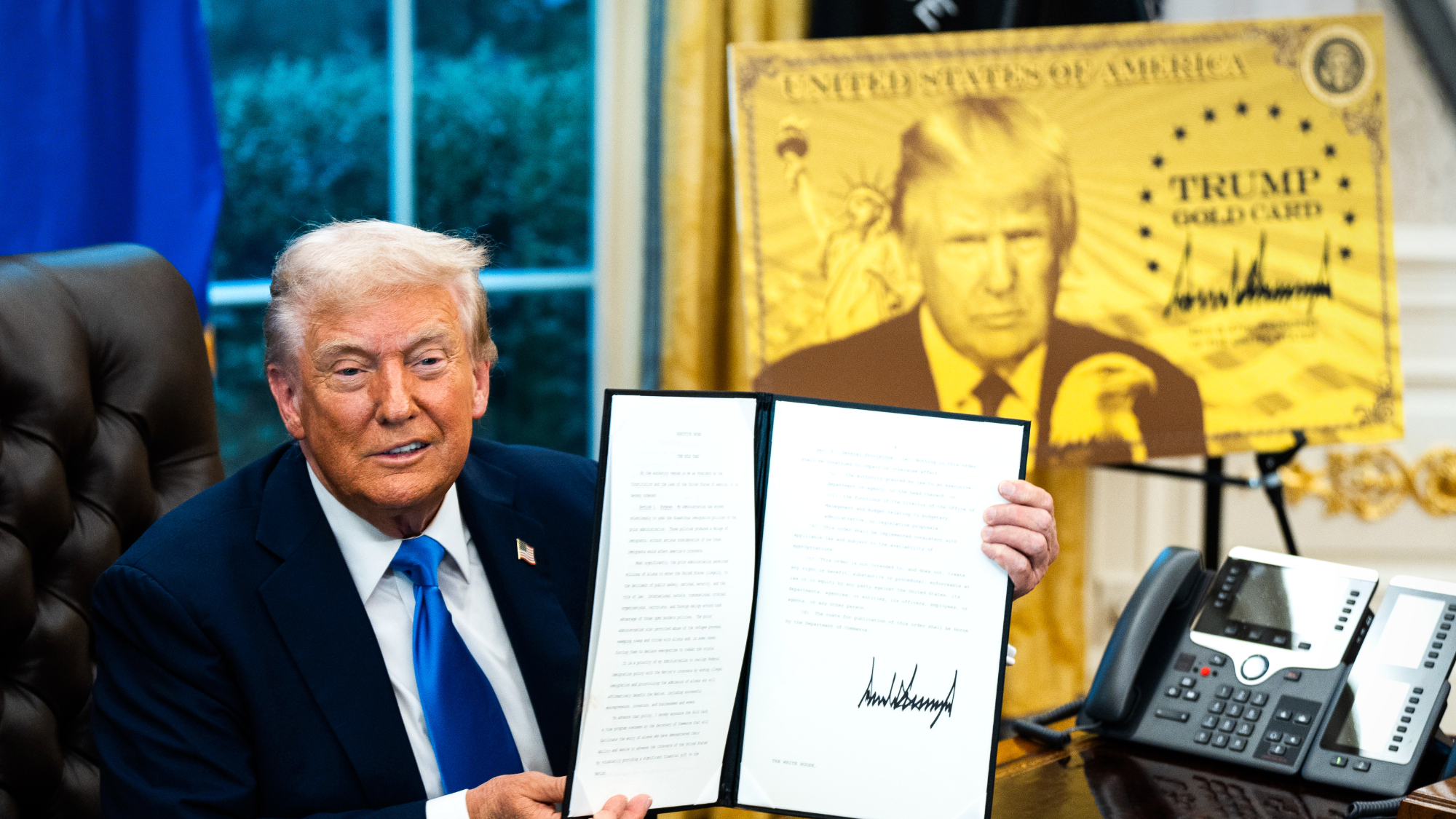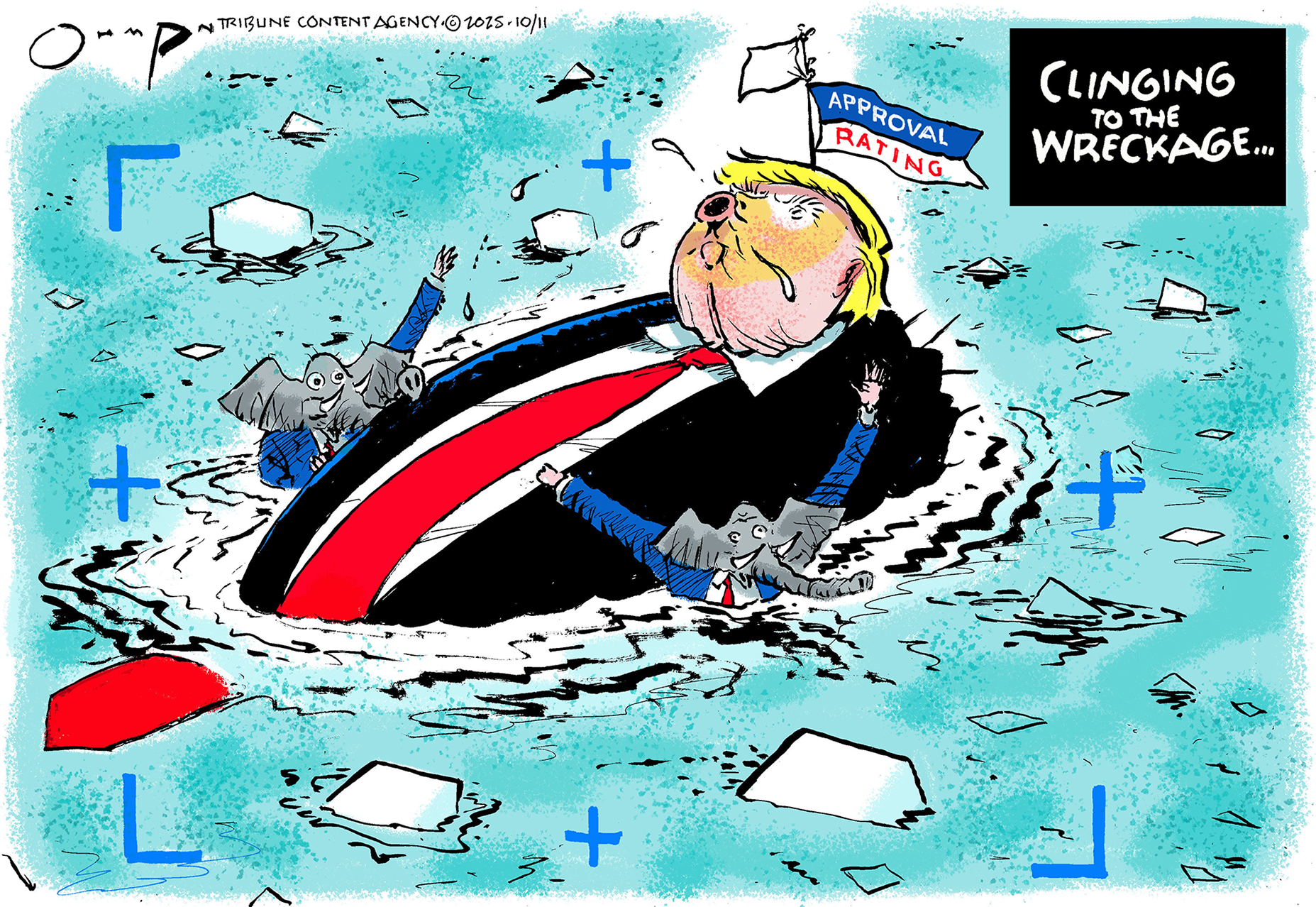Why America is so blasé about Trump's conflicts of interest
Here's why the Clinton Foundation sparked outrage and the Trump Organization induces yawns


Since the election, there has been an extraordinary amount of ink spilled on the subject of President-elect Donald Trump's businesses and the potential conflicts they pose when he moves into the Oval Office. And the conflicts are legion.
Trump, after all, has been an international brand for decades. He has ventures in multiple countries on nearly every continent. Though we don't know for certain who he owes money to, there is reason to suspect that he is in hock to entities with close ties to the Russian and Chinese governments. His closest advisers are his children, who are also executives in his business. He just built a new hotel on Pennsylvania Avenue with his name on it.
The opportunities for corruption and self-dealing are manifest — and the evidence so far suggests that Trump is blithe to the problem. So why was this never a material issue in the election? And why isn't there a public groundswell demanding that he divest himself completely of his assets before taking the oath of office, however painful and expensive such a transaction might be?
The Week
Escape your echo chamber. Get the facts behind the news, plus analysis from multiple perspectives.

Sign up for The Week's Free Newsletters
From our morning news briefing to a weekly Good News Newsletter, get the best of The Week delivered directly to your inbox.
From our morning news briefing to a weekly Good News Newsletter, get the best of The Week delivered directly to your inbox.
Pure partisanship is undoubtedly part of the answer. Trump's opponents are far more concerned about the potential for corruption in his administration than they were about the potential conflicts of the Clinton Foundation, and vice versa. But that surely isn't the entire explanation. After all, there was plenty of coverage of the Clinton Foundation as a potential source of conflicts, and not by any means only in the conservative media. And Trump's potential conflicts really are on an entirely different scale from anything we've seen before.
Moreover, given that a large part of the rationale for Trump's candidacy was that he was incorruptible because he had already made his money, you would think that this would be a point of particular concern to his supporters. But that does not appear to be the case. Why not?
Well, consider how the problem looks to someone inclined to empathize with Trump.
Here is a man who, over the course of a lifetime, built a vast and complicated business. Yes, he started out with many advantages; sure, he may have cut some ethical corners and played hardball more often than not. But at the end of the day, he built a business. It was his work, his risk, his reward.
A free daily email with the biggest news stories of the day – and the best features from TheWeek.com
Now you're saying that because he decided to serve his country, he has to destroy it? It's not enough that he remove himself from its operations; he has to take this beautiful thing he built, and sell it at a fire sale price, so that we can be satisfied that he won't use the office of president to make even more money?
That doesn't seem fair, does it?
It seems even less fair when you consider the contrast with politics-and-moneymaking as usual. The numerous former elected and appointed officials who have parlayed time in government into lucrative consulting, lobbying, or speech-giving have given voters every reason to suspect that their decisions while in government were corrupted by the prospect for post-public-service buck-raking. It's probably more than a little puzzling to understand why Trump's ownership of a Washington, D.C., hotel — which foreign diplomats will undoubtedly stay in as a way of showing respect — is worse than earning millions for speeches to industries you (or your wife) hope to regulate. At least Trump actually built the hotel.
In fact, I suspect to many, Trump's situation seems less disturbing precisely because it is so much more narrowly personal, whereas garden-variety corruption feels more systemic. If every member of Congress considers herself to be a lobbyist in waiting, who can be counted on to protect the interests of the people? By contrast, some people probably look at Trump's conflicts and say: Okay, in the worst case he personally makes a bunch of money he didn't deserve. But in terms of the effects on public policy, we're probably talking small potatoes. Meanwhile, what did Bill Clinton really do to earn his $80 million? And what did that payday cost America in policy terms?
To the extent that some people are thinking this way, they are mistaken. Matt Yglesias has written powerfully on the risk of systemic corruption in a Trump White House — the possibility that Trump will abuse regulatory discretion to favor companies that have greased his family's palm, and punish those that have not. That risk has more to do with Trump's character — his vindictiveness and his lack of principles — than it does with the disposition of his assets. But those assets make it much easier for Trump to achieve that kind of systemic corruption, if he is so inclined. Meanwhile, this risk is layered on top of the same list of opportunities for pervasive venal corruption that existed before. It's not either/or.
But to make that point, the opposition will need a tribune who isn't tainted with the "normative" corruption that has left the public cynical enough not to be outraged by the prospect of something considerably worse.
Noah Millman is a screenwriter and filmmaker, a political columnist and a critic. From 2012 through 2017 he was a senior editor and featured blogger at The American Conservative. His work has also appeared in The New York Times Book Review, Politico, USA Today, The New Republic, The Weekly Standard, Foreign Policy, Modern Age, First Things, and the Jewish Review of Books, among other publications. Noah lives in Brooklyn with his wife and son.
-
 $1M ‘Trump Gold Card’ goes live amid travel rule furor
$1M ‘Trump Gold Card’ goes live amid travel rule furorSpeed Read The new gold card visa offers an expedited path to citizenship in exchange for $1 million
-
 US seizes oil tanker off Venezuela
US seizes oil tanker off VenezuelaSpeed Read The seizure was a significant escalation in the pressure campaign against Venezuelan President Nicolás Maduro
-
 Political cartoons for December 11
Political cartoons for December 11Cartoons Thursday's political cartoons include sinking approval ratings, a nativity scene, and Mike Johnson's Christmas cards
-
 Has Zohran Mamdani shown the Democrats how to win again?
Has Zohran Mamdani shown the Democrats how to win again?Today’s Big Question New York City mayoral election touted as victory for left-wing populists but moderate centrist wins elsewhere present more complex path for Democratic Party
-
 Millions turn out for anti-Trump ‘No Kings’ rallies
Millions turn out for anti-Trump ‘No Kings’ ralliesSpeed Read An estimated 7 million people participated, 2 million more than at the first ‘No Kings’ protest in June
-
 Ghislaine Maxwell: angling for a Trump pardon
Ghislaine Maxwell: angling for a Trump pardonTalking Point Convicted sex trafficker's testimony could shed new light on president's links to Jeffrey Epstein
-
 The last words and final moments of 40 presidents
The last words and final moments of 40 presidentsThe Explainer Some are eloquent quotes worthy of the holders of the highest office in the nation, and others... aren't
-
 The JFK files: the truth at last?
The JFK files: the truth at last?In The Spotlight More than 64,000 previously classified documents relating the 1963 assassination of John F. Kennedy have been released by the Trump administration
-
 'Seriously, not literally': how should the world take Donald Trump?
'Seriously, not literally': how should the world take Donald Trump?Today's big question White House rhetoric and reality look likely to become increasingly blurred
-
 Will Trump's 'madman' strategy pay off?
Will Trump's 'madman' strategy pay off?Today's Big Question Incoming US president likes to seem unpredictable but, this time round, world leaders could be wise to his playbook
-
 Democrats vs. Republicans: who are US billionaires backing?
Democrats vs. Republicans: who are US billionaires backing?The Explainer Younger tech titans join 'boys' club throwing money and support' behind President Trump, while older plutocrats quietly rebuke new administration
